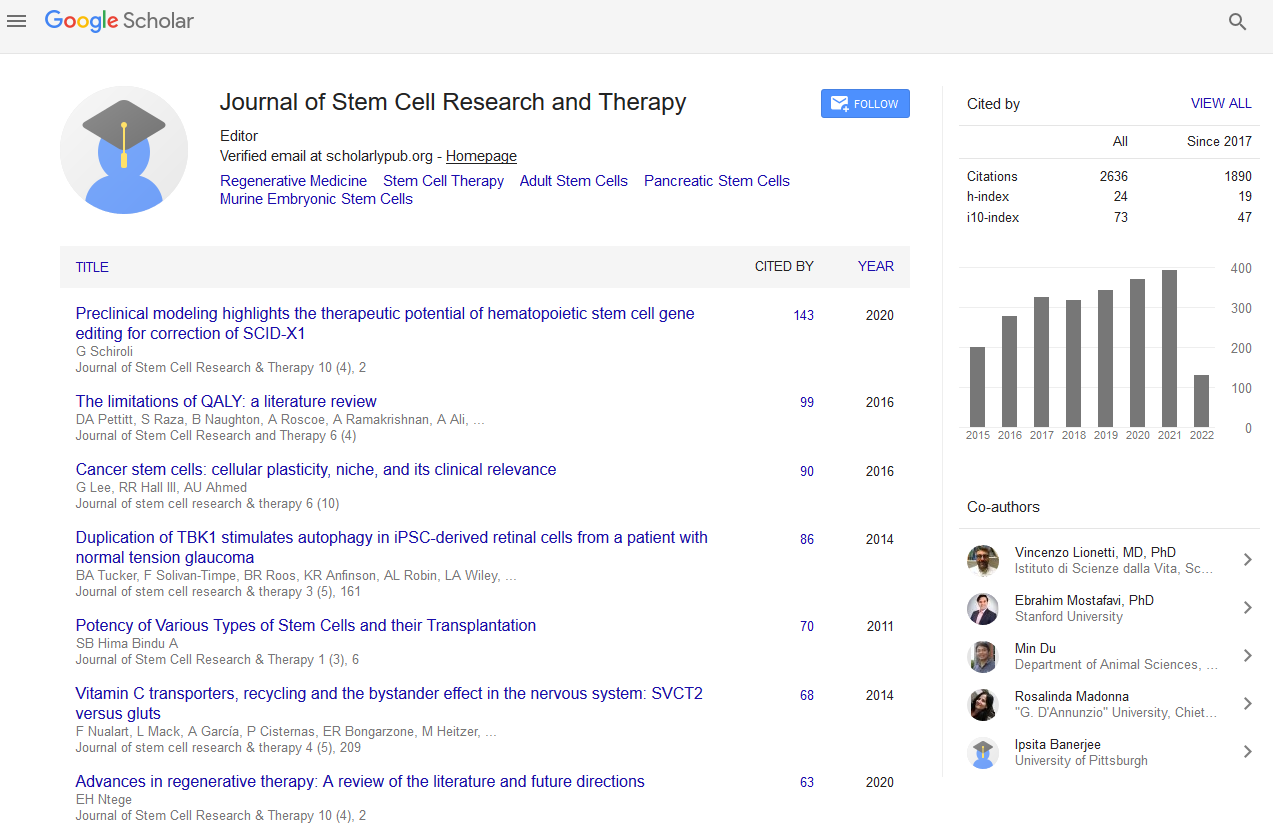Indexed In
- Open J Gate
- Genamics JournalSeek
- Academic Keys
- JournalTOCs
- China National Knowledge Infrastructure (CNKI)
- Ulrich's Periodicals Directory
- RefSeek
- Hamdard University
- EBSCO A-Z
- Directory of Abstract Indexing for Journals
- OCLC- WorldCat
- Publons
- Geneva Foundation for Medical Education and Research
- Euro Pub
- Google Scholar
Useful Links
Share This Page
Journal Flyer

Open Access Journals
- Agri and Aquaculture
- Biochemistry
- Bioinformatics & Systems Biology
- Business & Management
- Chemistry
- Clinical Sciences
- Engineering
- Food & Nutrition
- General Science
- Genetics & Molecular Biology
- Immunology & Microbiology
- Medical Sciences
- Neuroscience & Psychology
- Nursing & Health Care
- Pharmaceutical Sciences
Abstract
Side-population Cells Derived from Non-tumorigenic Rat Endometrial Cells are a Candidate Cell of Origin for Malignant Endometrial Tumors
Kiyoko Kato, Soshi Kusunoki, Tetsunori Inagaki, Nurisimangul Yusuf, Hitomi Okabe, Shin Suga, Hiroshi Kaneda, Yasuhisa Terao, Takahiro Arima, Kiyomi Tsukimori and Satoru Takeda
We have previously demonstrated that side population (SP) cells derived from endometrial cancer cells have cancer stem-like cell features. However, the role of stem cell-enriched subpopulations, SP cells in normal endometrium for carcinogenesis is still poorly understood. In the present study, to modeled early carcinogenesis in normal endometrium, we established two cell lines by introducing the oncogenic KRAS gene into SP (RSP) cells and non-SP (RNSP) cells from a rat non-tumorigenic endometrial cell line. Tumorigenicity was enhanced in SP cells harboring mutant KRAS (RSP-K12V cells) compared with that in NSP harboring mutant KRAS gene (RNSP-K12V cells). The primary cultured tumor cells derived from RSP-K12V cells exhibited long-term proliferating capacity in culture and had the capacity to form serial tumors in vivo. In contrast, the primary cultured tumor cells derived from RNSP-K12V cells failed to grow and became senescent. The proportion of SP cells was higher in RSP-K12V cells than in RSP cells and was highest in the RSP-K12V tumor cells and it was correlated with tumorigenicity. The levels of c-Myc and Oct4, and the transcriptional activity of the estrogen receptor were enhanced in RSP-K12V cells and their tumor cells compared with those in RNSP-K12V cells and their tumor cells, respectively. Tumor cells derived RSP-K12V acquired the potential for estrogen-independent proliferation. This is the first report which demonstrates that the occurrence of KRAS gene mutations in SP cells rather than NSP cells derived from nontumorigenic endometrial cells, contributes to the development of malignant endometrial tumors.


